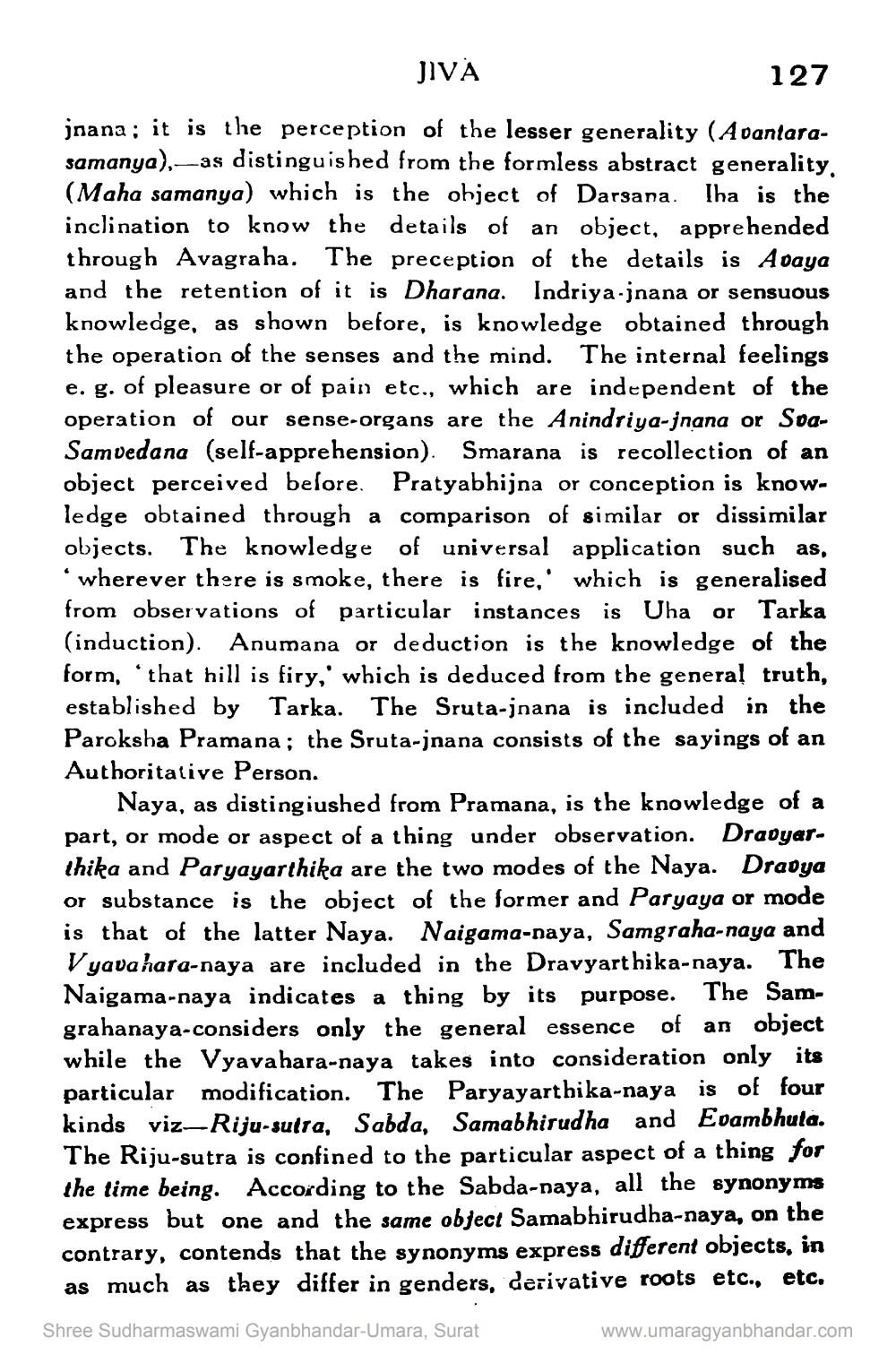________________
JIVA
127 jnana; it is the perception of the lesser generality (Avantarasamanya),-as distinguished from the formless abstract generality. (Maha samanya) which is the object of Darsana. Iha is the inclination to know the details of an object, apprehended through Avagraha. The preception of the details is Avaya and the retention of it is Dharana. Indriya jnana or sensuous knowledge, as shown before, is knowledge obtained through the operation of the senses and the mind. The internal feelings e. g. of pleasure or of pain etc., which are independent of the operation of our sense-organs are the Anindriya-jnana or SoaSamvedana (self-apprehension). Smarana is recollection of an object perceived belore. Pratyabhijna or conception is knowledge obtained through a comparison of similar or dissimilar objects. The knowledge of universal application such as, ' wherever there is smoke, there is fire,' which is generalised from observations of particular instances is Uha or Tarka (induction). Anumana or deduction is the knowledge of the form, 'that hill is firy,' which is deduced from the general truth, established by Tarka. The Sruta-jnana is included in the Paroksha Pramana; the Sruta-jnana consists of the sayings of an Authoritative Person.
Naya, as distingiushed from Pramana, is the knowledge of a part, or mode or aspect of a thing under observation. Dragyarthika and Paryayarthika are the two modes of the Naya. Dradya or substance is the object of the former and Paryaya or mode is that of the latter Naya. Naigama-naya, Samgraha-naya and Vyava hara-naya are included in the Dravyarthika-naya. The Naigama-naya indicates a thing by its purpose. The Samgrahanaya-considers only the general essence of an object while the Vyavahara-naya takes into consideration only its particular modification. The Paryayarthika-naya is of four kinds viz-Riju-sutra, Sabda, Samabhirudha and Evambhula. The Riju-sutra is confined to the particular aspect of a thing for the time being. According to the Sabda-naya, all the synonyms express but one and the same object Samabhirudha-naya, on the contrary, contends that the synonyms express different objects, in
as much as they differ in genders, derivative roots etc., etc. Shree Sudharmaswami Gyanbhandar-Umara, Surat
www.umaragyanbhandar.com




